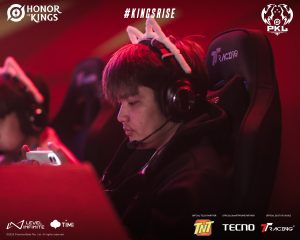Beyond Competition: How Esports Tournaments are Shaping the Global Stage

Beyond Competition: How Esports Tournaments are Shaping the Global Stage
Esports, once relegated to the fringes of entertainment, has exploded in popularity in recent years. Beyond the thrill of competition, these tournaments have become surprising platforms for countries to showcase their soft power – the ability to influence others through cultural appeal and intangible attractions. The recently conclude Phygital Games of the future and the upcoming MSC 2024 in Saudi Arabia are some examples.

Let’s delve into how esports tournaments are being used as tools for:
1. Cultural Exchange and Branding:
Esports tournaments host a global audience, with millions tuning in to watch players from different countries compete. This creates a unique opportunity for cultural exchange. Hosting these tournaments allows countries to showcase their unique aspects, from their landscapes and music during broadcasts to the in-game elements influenced by local folklore or mythology.
For example, the 2023 Asian Games in China featured esports for the first time, showcasing popular Asian titles alongside traditional sporting events. This integration helped bridge the gap between younger and older generations and introduced esports to a wider Asian audience.

2. Attracting Investment and Tourism:
Hosting prestigious esports tournaments can act as a magnet for investment and tourism. Major events attract international teams, players, and spectators, bringing a significant economic boost to host cities and countries. Additionally, the global media attention surrounding these tournaments can raise a country’s profile, attracting potential investors in various sectors like technology and entertainment.
For example, South Korea, a global leader in esports, has seen a surge in tourism due to its vibrant esports scene. Major tournaments held in the country have generated significant revenue, while showcasing its advanced technological infrastructure and fostering collaborations within the gaming industry.
3. Promoting Innovation and Education:
Esports tournaments serve as a tangible display of technological innovation. The sophisticated infrastructure, sophisticated equipment, and high-speed networks used to support these events showcase a country’s technological advancements and capabilities. This can inspire young minds to pursue careers in technology-related fields, potentially fostering a future generation of innovators and entrepreneurs.
Furthermore, some countries are integrating esports into their educational systems, recognizing the potential for career opportunities in the industry. This not only equips students with relevant skills but also highlights esports as a legitimate career path, challenging traditional career stereotypes.
4. Building International Relations and Diplomacy:
Esports provides a platform for international collaboration and diplomacy. Hosting international tournaments fosters cooperation between nations through collaborative efforts like event organization and sponsorship. Moreover, the presence of international teams and players allows players and fans to connect, fostering cultural understanding and breaking down potential barriers.
For instance, the International Olympic Committee’s (IOC) recognition of esports as a “sporting activity” signifies a growing acceptance of the industry on the global stage. This opens doors for potential future collaborations, potentially leading to the inclusion of esports in major multi-sport events like the Olympics.
The Future of Esports as a Soft Power Tool:
Esports, with its global reach and diverse audience, offers a potent platform for countries to exert soft power. As the industry continues to grow and evolve, we can expect to see further creative and innovative ways in which esports tournaments shape the global narrative, fostering international relations, cultural exchange, and technological advancements. However, it is crucial to acknowledge potential concerns surrounding commercialization and ensure that the core values of fair play, sportsmanship, and inclusivity remain at the forefront of this rapidly developing landscape.






